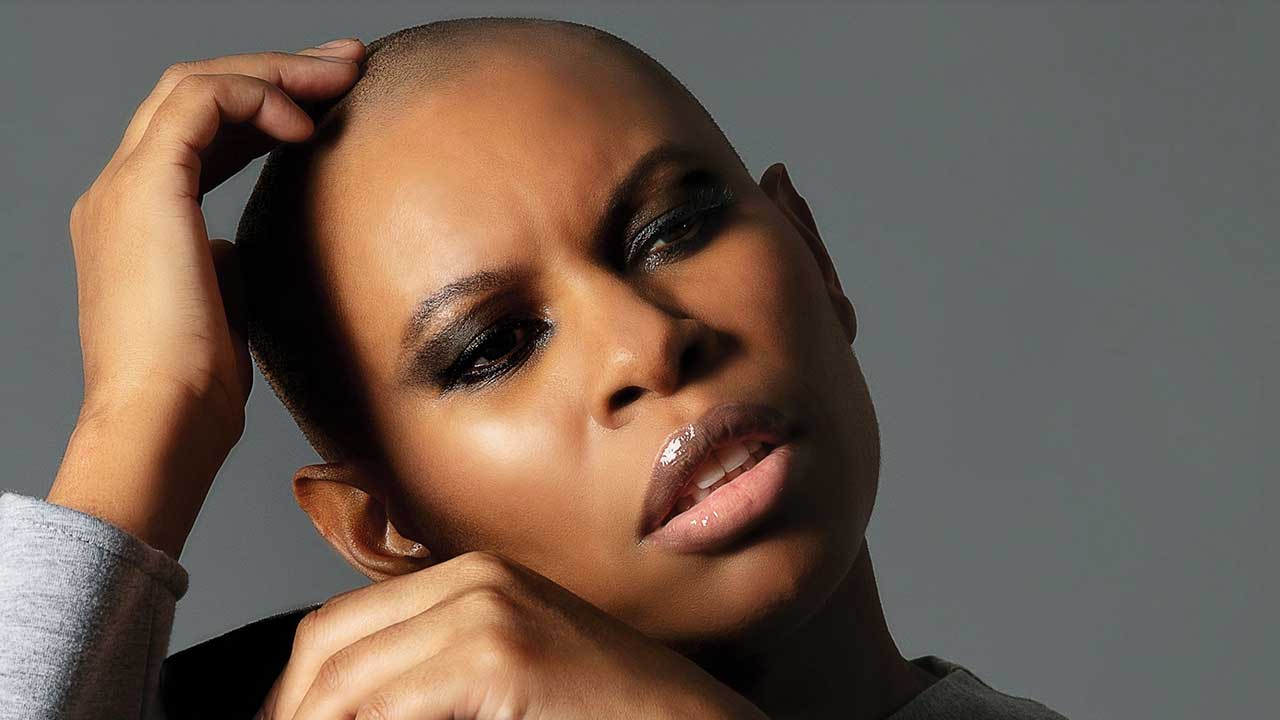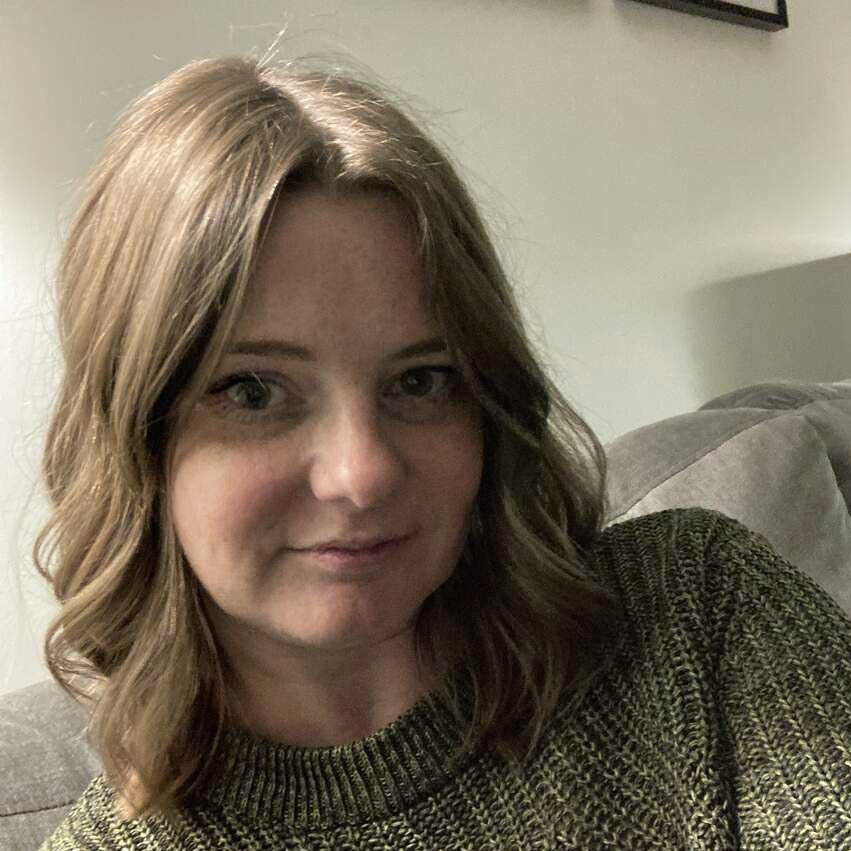As the spokesperson and focal point of Skunk Anansie, Skin has travelled the world, played to huge audiences and met legends. But in her new memoir, It Takes Blood And Guts, the singer sheds light on her childhood in South London, and the experiences that shaped her into the force of nature we see today.
Here she talks us through what she’s learned on the journey

You can’t fake the rock-star aura. Some people are just born with it
“I think that it’s somebody who makes the hair stand up on the back of your neck. It’s someone who knows how to command an audience. Some people walk out on to the stage and you think, bloody hell, they’ve just done something to you. Like when Axl Rose used to first walk out on stage – what is it about this guy that he has such flavour to him?
"That’s a special chemistry that some people just have. It’s an unknown quantity. That’s why every amazing singer isn’t famous. Some people have got the sparkle dust and some haven’t."
Racism has grown since Trump came to power and the UK voted for Brexit
"Black Lives Matter is really important, because there’s been an air when black people talk about racism, they kind of get shoved to the side. No one really wanted to talk about it. And now it’s put it right smack front and centre in front of people’s faces. It’s really vital that people put this at the forefront of conversation, because racism and anti-semitism have been getting worse and worse over the last few years.
"There’s some things happening now that have similarities to what was happening in the 1930s just before Hitler came to power, and it was a slow erosion of rights of people over a long period of time. If you’re not the one being persecuted, it’s very easy to step aside and not get involved.
"I’m not calling Trump a Nazi, but I am saying there’s a very drip, drip erosion of rights. So I’m really pleased about Black Lives Matter. I really support it, obviously, because I’m a black person and my life matters. And I think it’s made a lot of white people much more aware of all the subtleties of racism, all the things that are happening that they didn’t see."
In the book, I talk about being beaten up by my first boyfriend. If you’re in that position, get the fuck out of it
"He’s not going to change, and it’s not up to you to make him change. For me there was a lot of mental kind of stuff, and he only hit me that one time. But I had this overwhelming feeling of: ‘I’ve got to get out of this.’ If that happens, get out of that relationship there and then.
"Don’t believe a word they say and don’t think that you can change them. I don’t know any men around me that hit women. It’s not a normal thing for a man to do, and it’s a very small percentage of men. If you’ve got one of those, leave that one behind."
I grew up in the church, but questioned the teachings
“I kind of believe in some things, and some things I don’t. I think within a lot of religions you can see the man-made part of it, and you can see the spirituality. The man-made part is the part that disgusts me, because that is the part where you see women and gay people and trans people being treated really badly.
"But as long as I see people behaving respectfully I’m cool with it. The thing about religion is there are so many strains and cultures. Religion has really helped my people in massive ways, so I have a healthy respect and a lot of tolerance.”
Getting away from home for the first time was a massive learning curve
“Studying at uni in Middlesborough, because I was gay and discovering my sexuality I was able to step out of that student bubble and actually became friends with a lot of people from Middlesborough, who were a separate thing, they’d lived and worked there their whole lives. I was able to experience it on three levels, because that was when I started singing. I originally started singing jazz, so I was able to go to little jazz clubs.
I think that when people don’t know where you’re from or what you are they don’t prejudge you, they just see you as what’s in front of their face. So I was able to be myself and work out who I was, discover what I wanted to do and how I wanted to do it; have lots of different experiences and experimentations with things, with arts and music, with gay culture, with being a student."
I think it’s easier for kids to discover their sexuality now
“For me it was a completely different time and it was way more homophobic. With social media you have ways to find your people online, and you can be in a town in the middle of nowhere but you can experience a whole world and be connected to people all over the world.
"When I was a kid and coming out it was still a very bad thing. It was normal to be homophobic, and most people had that viewpoint. It’s not like homophobia has died, but I think it’s easier to get support and to find like-minded people. And also there’s more representation and there are more gay allies. That’s definitely a lot easier than when I was growing up."
Jamaican food feels like home
“My mum didn’t make English food when I was growing up, she only made Jamaican food. So when we started going to school and having school dinners it was a little alien at first. Food really reminds me of where I’m from and who I am – my Jamaican heritage. That feels good.”
I learned a lot of discipline from my parents
“My mum was very ‘no excuses’, you have to go to school. Also, my mum did a lot of higher education, she loved studying. I think that was quite a good example growing up – you have to work to learn something, and you finish it. When things get hard there’s a part of your personality that doesn’t want to continue because it’s too hard.
"I think in those early studying years, breaking through that barrier and not failing, and succeeding, is a very important skill to learn because you can take it anywhere in your life. Thinking: ‘It’s hard, but I’m not going to give up.’ I’m not scared of a challenge, I like a challenge.”
I did [TV show] The Masked Singer so people would see another side of me
“It was really fun when you’re out there singing with the audience on the stage. It’s fucking terrifying, and it’s really hard to sing in those outfits [Skin perfomed as Duck]. But you spend a lot of time backstage on your own. There’s no hanging out like there is on other TV shows, because you have to stay away from everybody.
"I like doing stuff like that because I think in England people see me quite seriously. But I’m actually quite goofy, quite ridiculous. I did it to change people’s opinions of what I was about. And I think it actually did that."
Our earliest Skunk gigs were electrifying
“I wish I was in the audience seeing one of them, because we were on fire. Those early gigs we were one of the best bands Britain has ever seen. When you are in it you don’t see it, but when you look back you’re like: ‘My God, that must have been good.’ There’s still nothing like us in the world, there’s still not another band like Skunk Anansie. We’re kind of a one-off. ”
Always remember your personal highlights
“Headlining Glastonbury [in 1999] was right up there. I think the first American tour was so fun and so amazing and such an eye-opener, it was mad from start to finish. And that’s something you can never take away. But loads of great things. I sung with Pavarotti, met Nelson Mandela. All of those things were really amazing."
Nelson Mandela was someone who had been to hell and back, and taken the high road when everyone else was going low
“Being in South Africa and hearing the stories of torture and everything they went through, it’s almost impossible to imagine how great someone’s spirit must be to be able to move above that. I think very few people would not have a lot of hate in their heart having gone through what he had.
"The Apartheid government were disgusting and morally abhorrent on every level. They were torturing children, raping women, killing people, treating black people like they’re dogs. And you think he went through all of that and he still decided that it was better to take the high road and lead his people to a better place instead of retribution. I think that’s the one lesson that I always take away from that. When they go low, you go high. It’s that simple."
Your youth should be a time of rebellion
“I used to sneak out all the time to go clubbing and to gigs, because I was from a very strict religious family. Luckily I never got caught. There’s nothing better than sneaking out and doing something you shouldn’t be doing and not getting caught. I think that’s character building. I mean, look after yourself, but every kid should have a period when they’re thirteen, fourteen, going out to go to gigs and snogging boys.”
Never let regrets drag you down
“I have a couple, but what’s the point? I’ve seen what regret can do to people, and I’ve seen how it can destroy the now. I don’t think it’s worth it for your own human spirit and mind. Regret is so bad for your soul, it’s bad for your spirit. If you’ve done something disgusting, then you carry that weight for the rest of your life. Everybody’s got a few of those.
"But you can’t make it twist and turn. If you carry that weight too hard and you have that much guilt about it, it stops you doing what you want to do now. You should never do it again, you should learn from it and take that with you in the future, but you shouldn’t make it destroy your spirit."
The lyric I’m most proud of still means everything today
“'Yes it’s fucking political’ still stands. Everything’s political."
It Takes Blood and Guts by Skin with Lucy O'Brien is out now.

